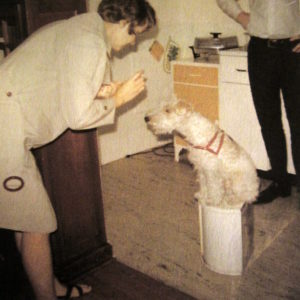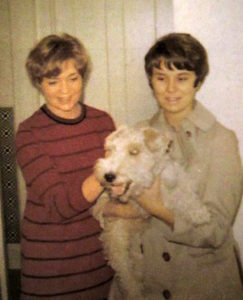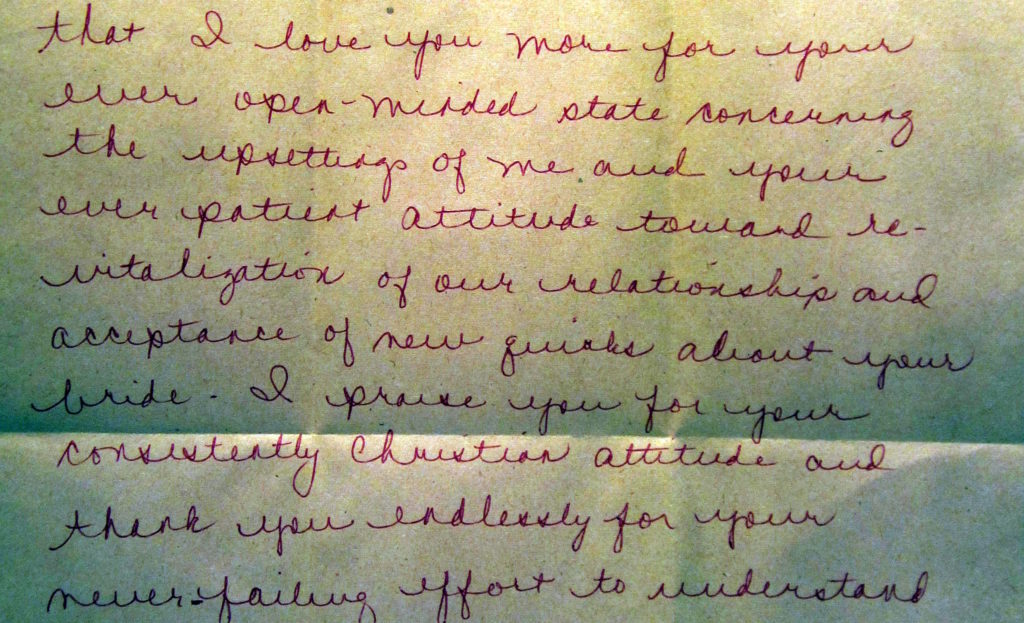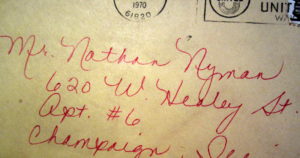February 11, 1970
About this time, Nate had a very rough night that culminated in a severe migraine headache. I had no idea what a migraine was until I watched him suffer through one. His agony was intense, and the only thing that helped was a darkened room with a cool cloth over his forehead and even covering his eyes.
 He told me he had suffered through several migraines during high school, but nearly a decade had passed without a single one. Hoping they had just been part of bodily changes from boyhood to manhood, he figured he’d seen his last one.
He told me he had suffered through several migraines during high school, but nearly a decade had passed without a single one. Hoping they had just been part of bodily changes from boyhood to manhood, he figured he’d seen his last one.
But there he was, stricken with the worst one he’d ever known, flat on his back and unable to sleep, eat, or even have a conversation. He certainly couldn’t cope with going to classes.
As his “helpmeet,” I felt helpless. Other than to re-soak his face cloth for him, there was little else I could do. And so I sat on the edge of the bed and prayed, longing for God to make him feel better.
Just before it was time for me to go to work, he vomited, and then fell into a deep sleep. His last words before drifting off were, “You go ahead. The worst is over.”
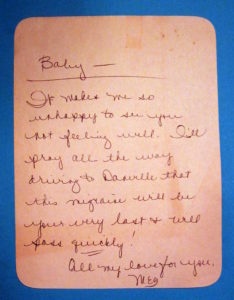 I penned a quick note and left for school, tremendously worried about my young husband. What had caused this awful attack? Had I done anything to bring it on? And how could we prevent it from ever happening again?
I penned a quick note and left for school, tremendously worried about my young husband. What had caused this awful attack? Had I done anything to bring it on? And how could we prevent it from ever happening again?
When I returned home later, he was dressed and sitting at the table, bent over his law books. He said he felt drained but that the headache had been completely gone when he’d woken from his morning sleep.
We had a long talk about what might have brought it on and came to no conclusions. He reassured me over and over that it had nothing to do with me. “Since migraines are most likely caused by intense stress,” he said, “then having you alongside me could only help, not hurt.”
We wondered aloud if he should drop one of his classes or quit his job at H & R Block. Feeling fine again, though, he said he didn’t want to do that unless there were more migraines. I admired his willingness to work so hard, especially since meeting his goals was as much for me as it was for him. But his bottom line was, “Let’s just see what happens.”
And so we prayed together about it, asking God to relieve Nate’s pressure and to keep future migraines away. In the mean time, I had one more question for Nate. “Do you think having some extra sex might increase the odds of never having another headache?”
He smiled his most handsome smile and said, “Well, why don’t we find out?”
And I was so glad to have him back again.
“The Lord has comforted his people and will have compassion on them in their suffering.” (Isaiah 49:13)

